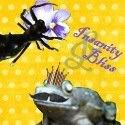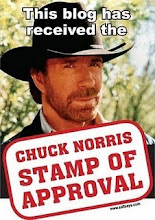My grandmother died unexpectedly when I was 19. My family was, for a long time, broken by grief over it. Within six months her cousin had also died, his death expected, due to cancer. In the midst of an otherwise pleasant movie there I was suddenly overcome with a flash memory of this same cousin, far too thin from his illness, struggling to make sure he fulfilled his roll as a pall bearer of my grandmother's casket. At the time I'd thought someone should help him with the weight of his corner of her wooden box. He was determined, however, to do her the justice of his care for her by being one of the men that would usher her from the church and into the ground.
My grandmother came from a remote and small town on the Western coast of Alaska. Her death was so unexpected it was a grief the whole community struggled to bear. We met for her service at the largest church in the area and then a caravan of cars several miles long drove out of town to the cemetery for the burial, and then later back to town for a potluck with everyone from the village, and others across the river, more across the bay, and still more from up around the neighboring lake. The food came from people's winter cache--berries they'd picked late in the summer, fish they'd dried at the start of it, moose meat they'd hunted that fall. Everyone shared the best they had. It was a grief we all understood together--the shock of losing such a vibrant, laughter-filled woman when no one had for even a moment expected it. One of the sad truths of this experience is that the town was good at handling funerals. Life in remote Alaska includes many deaths.
My family was met at the airport and driven to our home there as we all flew in from various towns around the country. We were met without ever having to ask. My sister and I drove across town from the airport in the back of a suburban, each of us with an arm propped up on my grandmother's casket. The suburban the town's makeshift hearse. My grandmother's body was, of course, inside and though the thought of flying on the same plane as her casket had somehow bothered me, the thought of riding across town in some other car to let another person sit in the back pressed beside her box that would later be lowered into the ground was unthinkable to me. So my sister and I sat there, each on opposite sides, leaning against my grandmother's coffin in a moment of being close to her.
It has been not quite twenty years since my grandmother died. One of the remarkable elements of such memory is in how emotionally vivid aspects of it still are. The truth is, I still grieve for her in many ways. The simple thing to say is that I miss her. Then, other elements of the same overall experience are almost lost to me. I do not remember them, and some I would not even if I were reminded of them by someone else. The moment of my cousin using the strength of his skinnied body to carry my grandmother's box from the church, for example, I had in no way thought of since till suddenly, inexplicably, a movie triggered its flash again in my mind.
My friend Aeyn Edwards died at the start of this new year. The truth is I haven't talked about it much, though I've mentioned to people a friend of mine had died. He was four days shy of 31. He'd survived leukemia almost three years. He'd survived immeasurable grief from his partner and father dying, both suddenly, and then being diagnosed with a life threatening illness while living alone. When his partner was still alive they'd traveled to Peru, met a teenager that was struggling to afford an education and responded by financially sponsoring him for the remainder of Aeyn's life. They also continued to stay in contact with him, and did what they could to return for visits and support the youth as he developed in such goals. In the midst of challenge, Aeyn persisted with incredible grace and passion for life. He readily admitted his own fatigue, his own grief over the difficulty of his challenges, but he did so with a kind of honesty that in itself, while painful, was also a blessing. Having said all of that, he is someone I have a hard time explaining except that his care for others, and his care for his own life too, was inspiring. And that the fact that he wished to be my friend has been one of the most meaningful blessings of my life. I care very much about wanting to be a good person. Somehow Aeyn caring about me reassured me that I must, but also that I could be one. His friendship was a reminder of how important it is for me to care in similar ways as him. Something I already knew but that was ever highlighted by Aeyn's beauty and strength.
For several years now I've said that the thing about grief is that it does not belong to the person grieving. Instead, he or she is just the means through which grief is possible. Some of what I mean by this is an allusion to the inexplicable nature of grief--that it comes when you might not realize it will; that it owns you in a way you cannot undo while it is there; that it isn't yours to grasp or hold on to, instead only to feel and let flow through you.
I used to think too that grief was something that would leave a person after a time, when it had been "worked through," so to speak. That if you faced your own grief over a person's death you'd get over some major portion of it. But I realize now such a view is mistaken. To think that grief is something that needs to be worked through or overcome is to see it as a pre-determined, or hard-sided thing that can be studied, or changed, or manipulated, or even expected and planned. Such a view is to see grief as a kind of object that can be held onto and changed, instead of recognizing it as a supple, flowing state that we encounter and cannot shake, though it will in time shake us. And then perhaps again return. Grief does not belong to any of us. We do not get to decide how it will go. It is a soft and flowing presence that appears as it will, based on its own demands. Holding onto it is a kind of abuse of what it is, a way of trying to demand it belong to you and be firm, when it cannot, and when doing such holding harms any of us more than letting grief flow would too.
Much of the time I avoid talking about those loved ones that have died because my sense is that most people are uncomfortable hearing about such things. Many of my friends regularly tell me they haven't experienced very much death. They say this and then say they've been lucky. The fact that I have, then, makes me alien to them, even if they love me, as they can, in the midst of it.
In the midst of very much missing Aeyn still, and, surprisingly, feeling fresh pain over even an almost-20 year gone passing of a loved one too, I can only think there is no luck in avoiding death of loved ones. Instead, I realize that the truth of my list of lost loved ones being long means I have been incredibly lucky to have loved such that I can feel grief now. The grief now is part of the love then. It implies a connection with someone deep enough to cause pain when it goes away. I am grateful for how such relationship has shaped me. I am grateful too that in being visited by grief, even as it does not belong to me, I discover too that the loved ones I miss are not entirely gone. They have lost their own bodies and become, like grief, something soft, and flowing, in memory through me.













Thanks for sharing this. I feel like people's culturally specific ideas about death and grieving are often very deeply held, in the sense that they've never thought to question them. For instance, the idea that grief should be ameliorated in those who feel it, or that it should fade with time are not universally held. Really interesting post.
ReplyDeleteBeautiful.
ReplyDelete*hug*